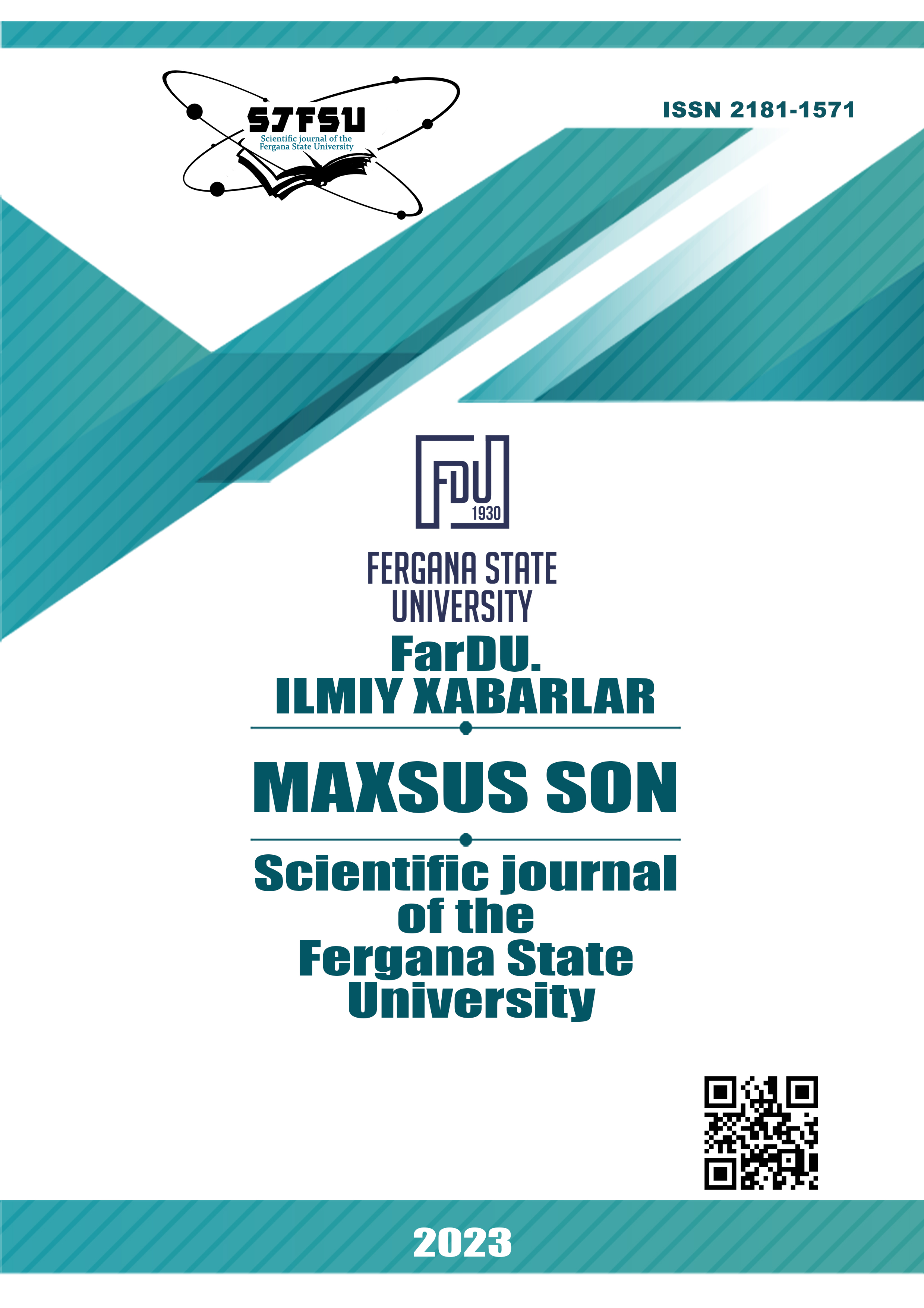POLYFUNCTIONALITY IN FORMS OF FUTURE TENSE OF UZBEK AND ENGLISH LANGUAGES
Main Article Content
Abstract
In the process of learning a certain foreign language, the topic of verb tenses in this language is considered one of the most widely covered parts. Because it is very important to use the appropriate form of the verb to show the events that happened at different times in the correct expression of an idea. In this case, the grammatical category of tense in the languages of the world is interpreted as a set of grammatical forms used to indicate the time of the action expressed by the verb. Although it is believed that there are present, past and future forms of verbs in Uzbek and English, not all researchers support this opinion. This, of course, is caused by the nature of syncretic characteristic of these forms, the polyfunctional manifestation of these features in speech. In this article, the opinions of various researchers who have studied the field of verbs in the contrasted languages are considered, and the authorʼs attitude towards them is expressed, and the presence of future tense forms in Uzbek and English languages is proved. Polyfunctional aspects of syncretic tenses are explained by comparing examples from the two languages. On the basis of conducted research and analysis of examples, it is concluded that future tense forms in the compared languages realize their syncretic nature and show their polyfunctional characteristics.
Article Details

This work is licensed under a Creative Commons Attribution-NonCommercial-NoDerivatives 4.0 International License.
References
Ганиева, Д. А. (2016). PROBLEM OF PRIMARY AND SECONDARY FUNCTIONS IN LINGUISTICS. Ученый XXI века, (5-1 (18)), 66-68.
Раҳматуллаев Ш. Ҳозирги адабий ўзбек тили. Биринчи китоб. – Тошкент: Mumtoz soʻz, 2010.
Смирницский А. Морфология английского языка. – Москва: Издательство литературы на иностранных языках, 1959.
Турсунов У., Мухторов А., Раҳматуллаев Ш. Ҳозирги ўзбек адабий тили. – Тошкент: Ўзбекистон, 1992.
Ҳожиев А. Феъл. – Тошкент: Фан, 1973.
Azizovna, G. D. Ismoilova Dilorom Rustamjon qizi.(2023). Theoretical foundation of structural linguistics. Scientific Journal of the Fergana State University, 28(4), 28.
Declerck R. The Grammar of the English Verb Phrase. Volume 1: The Grammar of the English Tense System. Berlin: Mouton de Gruyter, 2006.
Ganieva, D. A. (2022). Syncretism and polyfunctionality of the grammatical category of mood. Current research journal of philological sciences, 3(10), 67-74.
Ganieva, S. A. (2023). The process of phraseologicalization and asymmetric dualism. American Journal of Philological Sciences, 3(02), 12-16.
Huddleston, R., Pullum, G.K. The Cambridge Grammar of the English Language. Cambridge: Cambridge University Press, 2002.
Iskandarova , S., Karimova , S., & Abdukarimova , M. (2021). Negative prefixes in english and uzbek languages. Збірник наукових праць SCIENTIA.
Kosimova, M. U. (2022). The development process of the subject of stylistics and its main tasks. Current research journal of Philological sciences, 3(11), 1-7.
Mashrabovna, N. M., & Aʼzamjonovna, Y. S. (2022). Theoretical concept of politeness basics in different-regional variations. Ijodkor oʻqituvchi, 3(25), 25-27.
Mukhtorovna, Y. S. (2023). The history of" wise words" in linguistics. Journal of language and linguistics, 6(4), 29-32.
Palmer F.R. The English verb. London: Longman, 1988.

